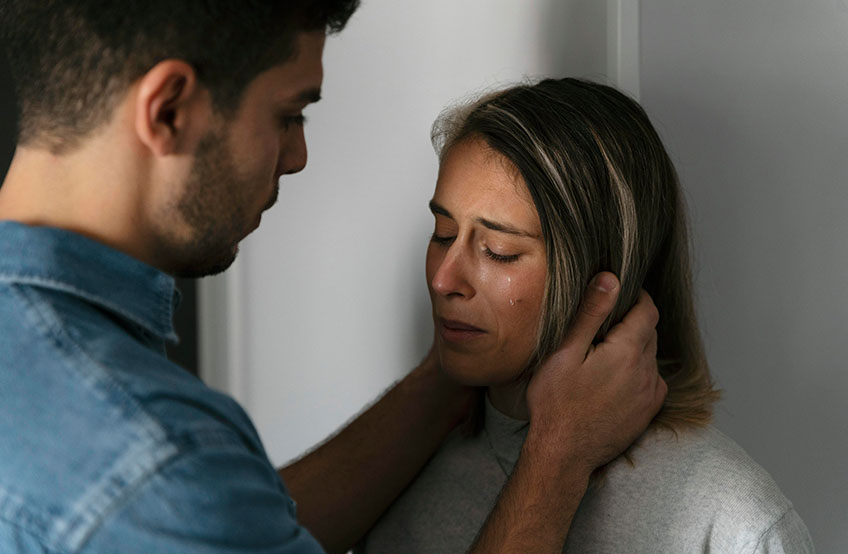
In today’s hyper-connected world, it’s easy to overlook the complexities of our relationships with others. While connection is essential for our well-being, an unhealthy reliance on people can lead to what is often referred to as “people addiction.” This condition can manifest in various ways, impacting your mental health, self-esteem, and overall quality of life. In this blog, we will explore the signs of people addiction and offer practical steps to overcome it.
What is People Addiction?
People addiction, or relational addiction, refers to an overwhelming dependence on others for emotional support, validation, and identity. It often stems from a fear of rejection or loneliness, leading individuals to seek constant reassurance and approval from those around them. While forming connections is natural, when these connections become a source of anxiety or distress, it may indicate a deeper issue.
Signs of People Addiction
Constant Need for Validation: You may find yourself regularly seeking approval from friends, family, or even acquaintances. This could involve fishing for compliments or feeling anxious if you don’t receive immediate feedback on your actions or appearance.
Fear of Rejection: A significant fear of being abandoned or rejected can lead you to overextend yourself in relationships. You may compromise your needs and desires to keep others happy, fearing that saying “no” will result in their withdrawal.
Over-Commitment: If you often say yes to requests and obligations—even when they overwhelm you—it could be a sign of people addiction. You may prioritize others’ needs over your own, leading to burnout and resentment.
Neglecting Self-Care: When you prioritize others over yourself, self-care often takes a backseat. You might skip meals, lose sleep, or neglect your hobbies and interests in favor of catering to others.
Difficulty Being Alone: If you constantly feel anxious or uncomfortable when alone, this may indicate a dependency on people for comfort. You might feel the need to fill your schedule with social activities to avoid solitude.
Emotional Rollercoaster: Your emotions may fluctuate dramatically based on your interactions with others. If someone cancels plans or gives you critical feedback, you may experience significant distress or feelings of worthlessness.
Overcoming People Addiction
Self-Reflection: Begin by assessing your relationships and identifying patterns of behavior. Ask yourself why you feel the need for constant validation and what underlying fears may contribute to this dependency. Journaling can be a helpful tool for self-discovery.
Set Boundaries: Learn to establish healthy boundaries in your relationships. This might involve saying “no” to requests that overextend you or limiting your availability. Communicating your needs to others is essential for fostering respectful relationships.
Practice Self-Care: Prioritize self-care activities that nourish your mind, body, and spirit. This could include exercise, meditation, reading, or engaging in hobbies that bring you joy. When you invest time in yourself, you cultivate a stronger sense of identity and fulfillment.
Seek Professional Help: If you find it challenging to break free from people addiction, consider seeking support from a therapist or counselor. They can help you explore the root causes of your dependence and guide you through the healing process.
Cultivate Independence: Work on building your self-esteem and independence. Engage in activities alone, such as exploring new hobbies, traveling, or attending events without relying on friends. Learning to enjoy your own company can help reduce your reliance on others.
Foster Healthy Relationships: Surround yourself with people who respect your boundaries and support your growth. Focus on building deep, meaningful connections rather than superficial ones. Healthy relationships can provide the emotional support you need without fostering dependency.
Practice Mindfulness: Incorporate mindfulness practices into your daily routine. Mindfulness can help you become more aware of your thoughts and emotions, allowing you to respond rather than react to your feelings of anxiety or the urge to seek validation.
Celebrate Small Wins: Acknowledge and celebrate your progress, no matter how small. Each step you take towards independence and self-acceptance is a victory worth recognizing. Gratitude practices can help you appreciate your journey and motivate you to continue.
Conclusion
Overcoming people addiction is a journey that requires self-awareness, patience, and commitment. By recognizing the signs and taking proactive steps toward healing, you can foster healthier relationships and cultivate a stronger sense of self. Remember, it’s okay to prioritize your own well-being and embrace the beauty of self-discovery. In doing so, you’ll create a more balanced and fulfilling life—one where connections with others enhance your happiness rather than define it. Your journey toward freedom begins today!
Ranjitha Raj





Very informative content.